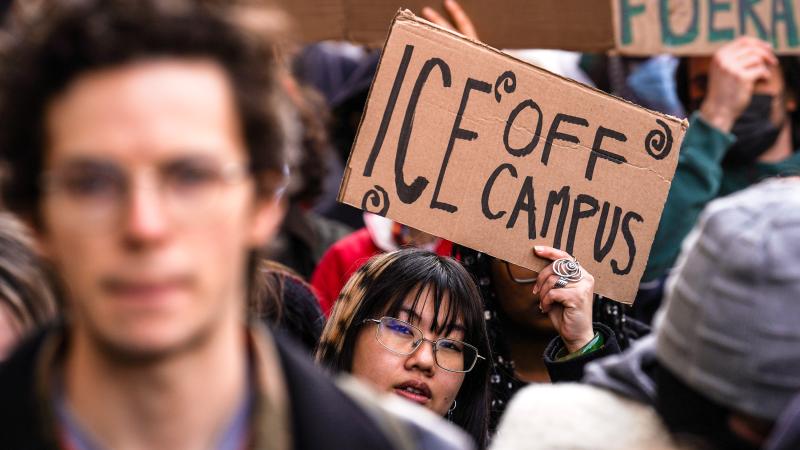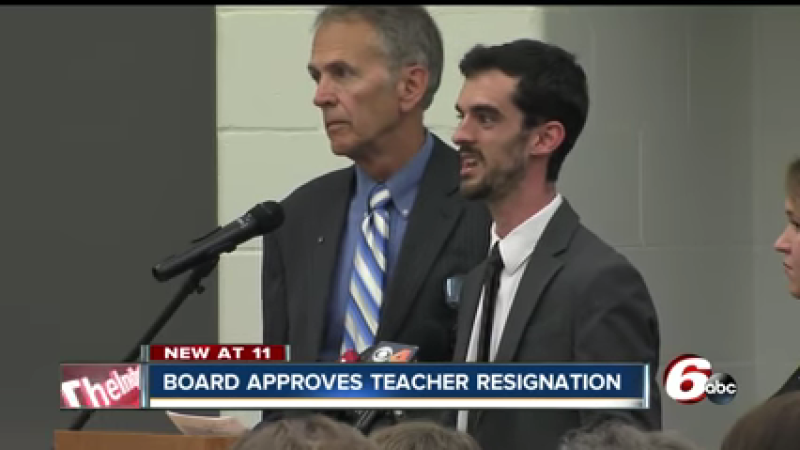COVID pandemic caused average public school student to lose a half year of learning, study
The new research also includes data on federal recovery dollars received per district and the Education Department's 2022 National Assessment of Educational Progress, more commonly known as "The Nation's Report Card."
A recent study among researchers from Harvard and Stanford universities finds the COVID-19 pandemic had a devastating impact on public school education: the average U.S. student in grades 3–8 lost the equivalent of a half-year of learning in math and a quarter of a year in reading.
"The pandemic was like a band of tornadoes that swept across the country," said Thomas Kane, the faculty director at Harvard's Center for Education Policy Research. "Some communities were left relatively untouched, while neighboring schools were devastated."
The findings are in the school’s Education Recovery Scorecard, which also includes a map of the hardest hit school districts. Kane said the report will help local leaders "see the magnitude of the damage and guide local recovery efforts."
Other findings include:
- Six percent of students were in districts that lost more than a year of learning in math, while 3% were in districts in which math achievement actually rose.
- The pandemic widened disparities in achievement between high- and low-poverty schools.
- The quarter of schools with highest shares of students receiving federal lunch subsidies missed two-thirds of a year of math learning, while the quarter of schools with the fewest low-income students lost two-fifths of a year.
The new research also includes data on federal recovery dollars received per district and the Education Department's 2022 National Assessment of Educational Progress, more commonly known as "The Nation's Report Card."
The map includes data from 29 states and Washington, D.C.
"One of the things we found is that even within a district, there is variability," said Sean Reardon, professor of poverty and inequality in education at Stanford University and director of the Educational Opportunity Project. "School districts are the first line of action to help children catch up. The better they know about the patterns of learning loss, the more they’re going to be able to target their resources effectively to reduce educational inequality of opportunity and help children and communities thrive."
In response to the findings, Education Secretary Miguel Cardona said: "The latest Nation’s Report Card results must serve as a call to action to revisit our existing plans and scale up proven academic recovery strategies such as ensuring a robust and qualified teacher and leader workforce. ... While the recent data is alarming, catching our students up to the 2019 achievement levels is a low bar. We must aim higher. Our students should be leading the world."
Parents and others have argued that too stringent state and federal mandates that shuttered public schools and resulted in remote learning during the pandemic contributed to the learning setbacks detailed in the report. Others have cast a lot of the blame on teachers unions for pushing to keep teachers out of classrooms during the pandemic.
To help students in his home state catch up with learning, Virginia GOP Gov. Glenn Youngkin last year announced a new tutoring program in which students from Historically Black Colleges and Universities will come together to tutor kids K-12.
This program received $2 billion from the Commonwealth for COVID-19 relief and education.
Other governors who also set up tutoring programs included Michigan Democrat Gov. Gretchen Whitmer, who introduced the "MI Kids Back on Track" plan last year.
"The proposal would invest $280 million of Michigan’s $3 billion in additional revenue to tackle unfinished learning after a tough few years with tutoring or other forms of personalized instruction before, after, or during school," a statement from the governor's office reads.
Other states that have invested in tutoring programs to help kids get back on track after COVID include Mississippi and Louisiana.















